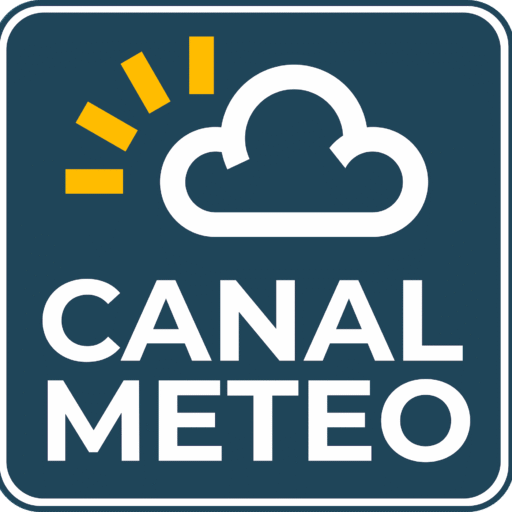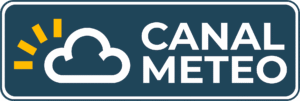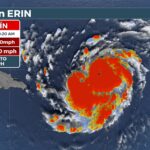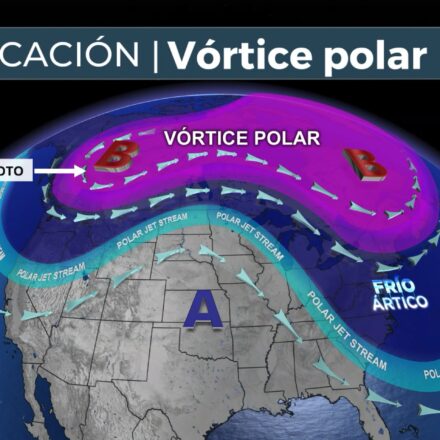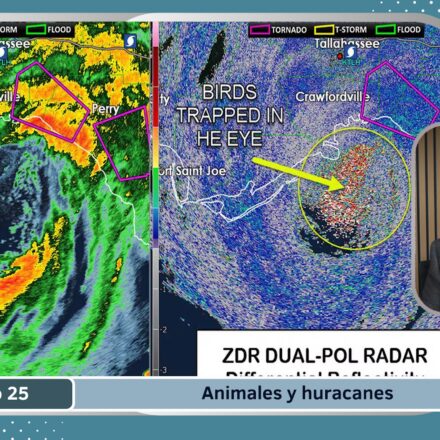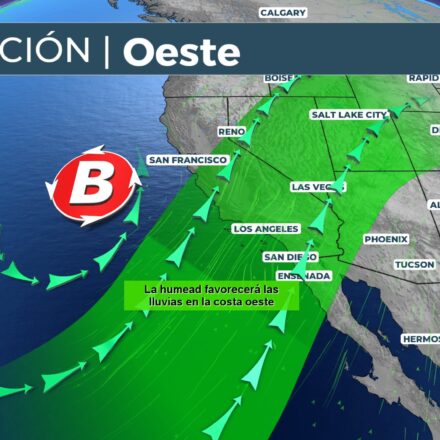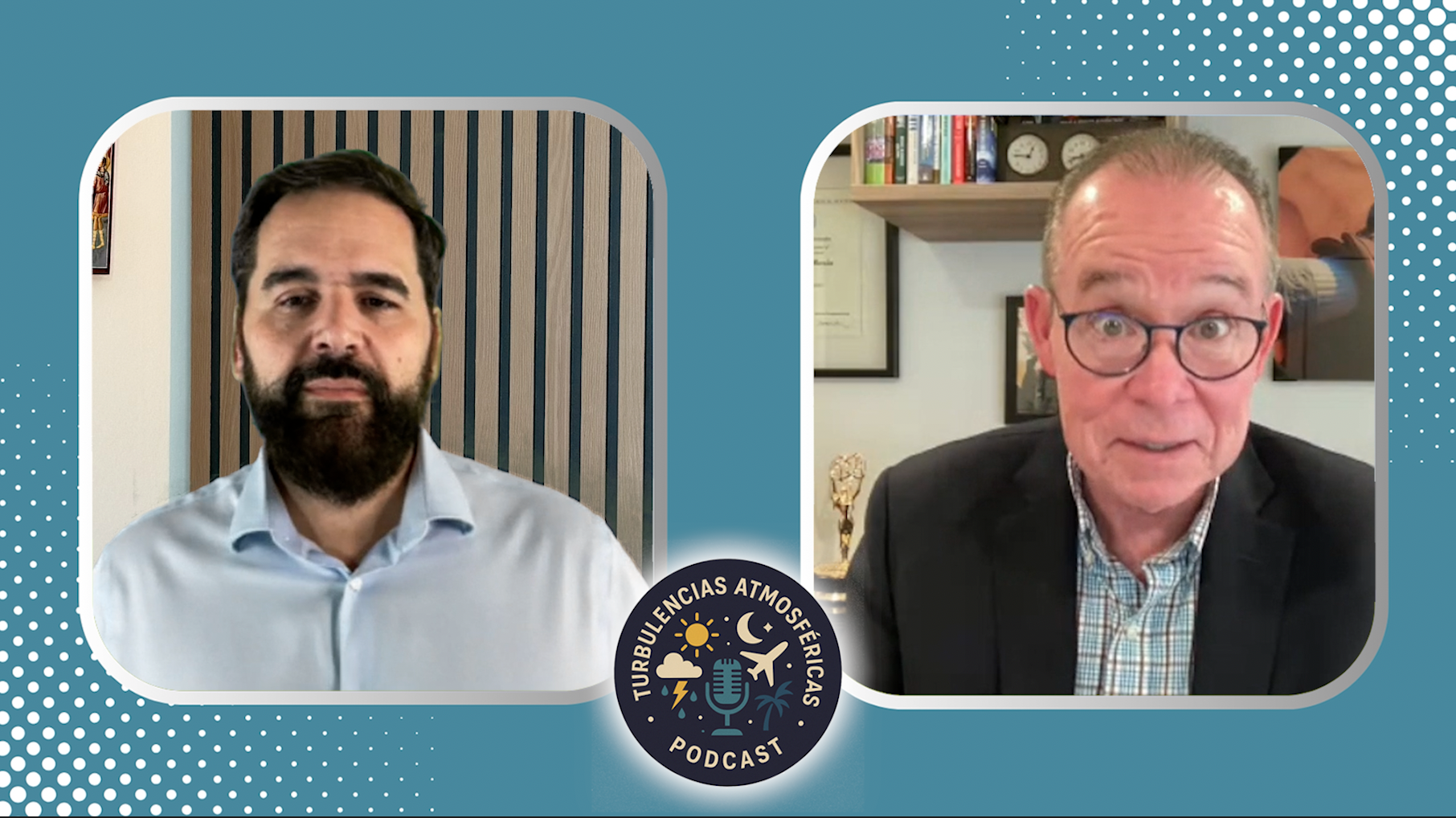
Chapter 12: Miami, ready for another Andrew?
In this episode we talk to a special guest, meteorologist John Morales, three decades of service to the Hispanic community.
Important points
John Morales, the first Latino meteorologist
In episode 12 of our podcast we had the privilege of talking with John Moralesone of the most recognized and respected voices in the world of meteorology. With more than 30 years of experience, Morales has earned the trust of millions of viewers in the United States and Latin America thanks to his scientific rigor and communicative approach. Throughout his career, he has been chief meteorologist at Telemundo y NBC in South FloridaHe has become a reference for many professionals -including myself- who have followed in his footsteps in the dissemination of weather and climate.
His career has positioned him as a communicator who transcends borders, capable of explaining complex phenomena in an accessible language and always with a human approach. Morales has not only witnessed some of the most shocking meteorological episodes of the last decades, but he has also known how to interpret those experiences to teach, warn and guide the Hispanic population in critical moments.
Andrew, in first person
One of the most interesting moments of the interview was recalling the coverage of hurricanes that marked history. Morales recounted how he lived through the devastating hurricane Andrew in 1992which hit South Florida hard, leaving destruction and lessons about the vulnerability of our cities in the face of nature. Years later, he was a witness to the drama of the Hurricane Maria in Puerto Rico in 2017This catastrophe not only affected the island's infrastructure, but also revealed the fragility of the island's communication and emergency response systems.
These episodes are not only part of meteorological history, but are also part of Morales' personal and professional life. From the perspective of a communicator on the front line, he highlights how accurate, clear and timely information can save lives. His experience with these hurricanes has led him to reaffirm the importance of preparedness, education and community resilience natural disasters.
Science with rigor, communication with empathy
A distinguishing feature of John Morales is his way of communicating meteorology. In the interview, he emphasized that it is not just about showing maps or figures, but about humanizing science so that people understand the risks and can make informed decisions. His style combines technical accuracy with empathy, a balance that has made him a benchmark among meteorologists working in the media.
In addition, Morales has been a pioneer in giving voice to the Hispanic community in a country where, for a long time, weather warnings and preparedness messages were mostly provided in English. Aware of the vulnerability of those who are not fluent in English, he has worked to ensure that Latino families receive the same quality of information in their language. This commitment to inclusion sets him apart and makes him an example of how meteorology is also a social service.
Latinos, resilience and climate action
Another of the main topics of the conversation was the role of Latinos in climate change. Morales stressed that our communities are among the most exposed to the effects of extreme weather -whether because they live in coastal areas, work in vulnerable sectors such as agriculture or construction, or have less access to emergency resources.
However, he also emphasized that Latinos have an important role to play in the high resilience. Solidarity among families, a sense of community and creativity in the face of difficulties are strengths that should be strengthened. Morales advocates that the Hispanic community in the U.S. should become climate action protagonistnot only as victims of its effects, but as leaders in education, preparedness and advocacy for policies that protect our future. Their message is clear: the fight against climate change is not only scientific or political, it is also cultural and social.
A legacy for new generations of meteorologists
Finally, Morales reflected on the significance of his career over time. His legacy is not limited to the hurricanes he covered or to the years in front of the cameras, but to the inspiration that he has passed on to new generations of meteorologists and communicators.. Many young people, seeing him explain with clarity and passion, decided to pursue a career in atmospheric science or weather journalism.
His story shows that meteorology is much more than forecasts: it is a bridge between science and society. Morales has shown that you can be rigorous and approachable, technical and human, scientist and communicator at the same time. His voice continues to be indispensable in the conversation about hurricanes, climate change and community preparedness, and his example is a guide for those of us who believe in the power of communication as a tool to save lives.
✨ This chapter of Atmospheric Turbulence not only brings us closer to the life and career of a great meteorologist, but it also reminds us of the importance of to report responsibly and empathetically in a world increasingly exposed to the risks of extreme weather.
You can retrieve the other chapters of Atmospheric Turbulence here.
